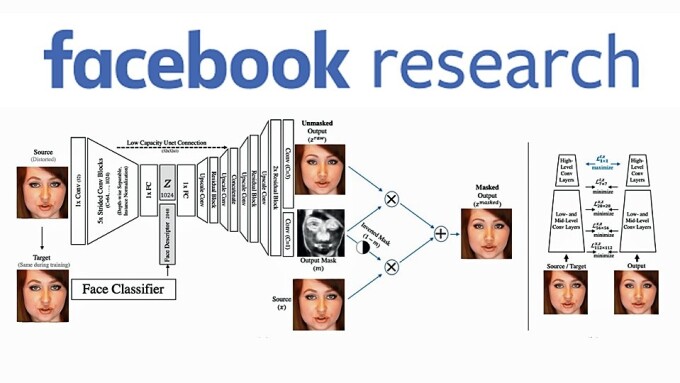LOS ANGELES — Even as a range of regulators from Australia to the U.K. and beyond contemplate the broad use of facial recognition for online age verification (AV), a new report reveals that Facebook is working to blunt the effectiveness of this technology for video streams.
The report, “Live Face De-Identification in Video,” was produced for the International Conference on Computer Vision by Facebook AI Research and Tel-Aviv University team members Oran Gafni, Lior Wolf and Yaniv Taigman.
“We propose a method for face de-identification that enables fully automatic video modification at high frame rates,” the report’s abstract noted. “The goal is to maximally decorrelate the identity, while having the perception (pose, illumination and expression) fixed.”
“We achieve this by a novel feed-forward encoder-decoder network architecture that is conditioned on the high-level representation of a person’s facial image,” the abstract explained. “The network is global, in the sense that it does not need to be retrained for a given video or for a given identity [creating] natural-looking image sequences with little distortion in time.”
Gafni posted a video on YouTube that shows the process.
Although protecting the identity of adult talent from stalkers and unwanted exposure was probably not the motivating factor in developing facial de-identification technology, this video modification tool may provide an unexpected boon for performers who strive to protect their privacy — an ironic twist for a company like Facebook that has been so condemned for its perceived privacy shortcomings.
It’s also interesting to note the interplay of the rise of “deepfakes” and the facial recognition/counter-recognition war being waged. Combine this with the appeal of “selfie filters” among content creators and it is clear that portraying our customized, idealized digital selves without fear of unwanted personal identification will remain a high priority for technology developers — and for the privacy-minded adult entertainment community.






